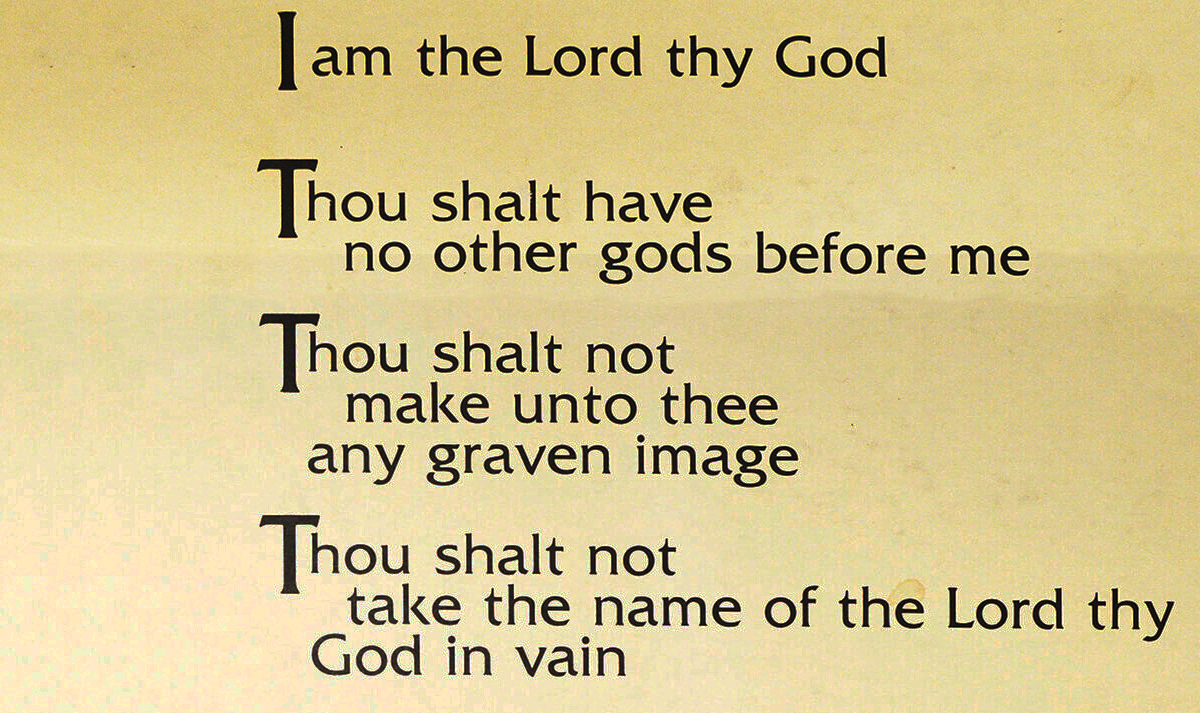America’s founding was blessed by the contributions of many individuals who are little, or even completely unknown to us today. Charles Thomson is one such unsung patriot.
In 1774 he was beginning to make a name for himself as a patriotic leader in Philadelphia. John Adams noted, “This Charles Thompson is the Sam Adams of Philadelphia — the Life of the Cause of Liberty, they say.”1
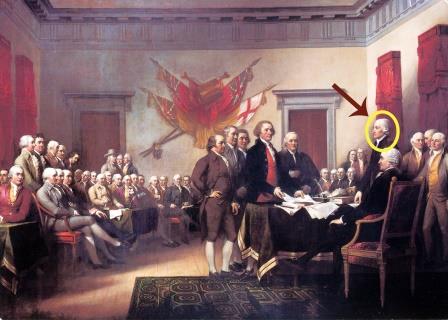 Though never a member of that august body, as Secretary of the Continental Congress for over fifteen years, Thomson had a front-row seat to the birth of the nation and his fingerprints are all over America’s establishing documents. For example, the copy of the Declaration of Independence included with the official Journals of Congress were in Thomson’s handwriting, and he was one of only two people who actually signed it on July 4th.2
Though never a member of that august body, as Secretary of the Continental Congress for over fifteen years, Thomson had a front-row seat to the birth of the nation and his fingerprints are all over America’s establishing documents. For example, the copy of the Declaration of Independence included with the official Journals of Congress were in Thomson’s handwriting, and he was one of only two people who actually signed it on July 4th.2
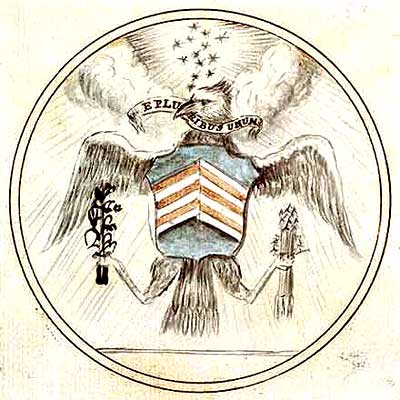 Thomson is also responsible for the Great Seal of the United States, which he prepared and Congress approved in 1782.3
Thomson is also responsible for the Great Seal of the United States, which he prepared and Congress approved in 1782.3
As the First Congress took its place under the new government created by the Constitution, Thomson retired from that long-term post. His last official act was personally notifying George Washington that he had been unanimously selected the President of the United States.4
But Thomson was not only a great patriot and supporter of the American cause, he was also a champion of the Word of God. In fact, his name is associated with some of America’s earliest Bible editions.
For example, his name, as Secretary of Congress, is found in the introduction to “The Bible of the Revolution,” which was the first Bible printed in English in America. That Bible was printed by Robert Aitken, the official printer of the Continental Congress. Aitken described his Bible as “a neat edition of the Holy Scriptures for the use of schools.”5 It was reviewed and approved by a committee of the Continental Congress, and published with the official congressional endorsement prominently in the front. (All of the original books pictured below that are associated with Charles Thomson are from our collection at WallBuilders.)
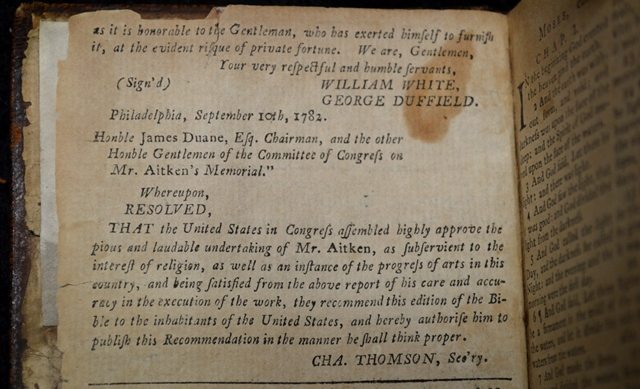 Thomson was also responsible for the first American translation of the Greek Septuagint (the full Greek Bible) into English in 1808 – a labor of love that consumed nearly two decades of his life.6 Called Thomson’s Bible, it is a four volume-set that is considered one of the most scholarly of American Bible translations.
Thomson was also responsible for the first American translation of the Greek Septuagint (the full Greek Bible) into English in 1808 – a labor of love that consumed nearly two decades of his life.6 Called Thomson’s Bible, it is a four volume-set that is considered one of the most scholarly of American Bible translations.
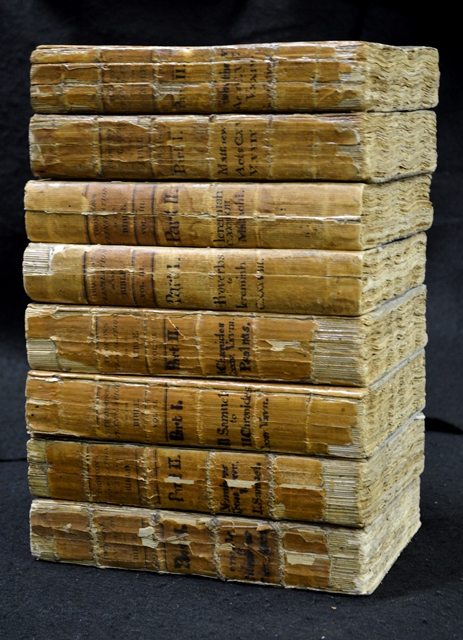 Thomson also produced an eight-volume set in which every other page was blank, thus allowing readers space to write notes on the Scriptures as they studied them.
Thomson also produced an eight-volume set in which every other page was blank, thus allowing readers space to write notes on the Scriptures as they studied them.
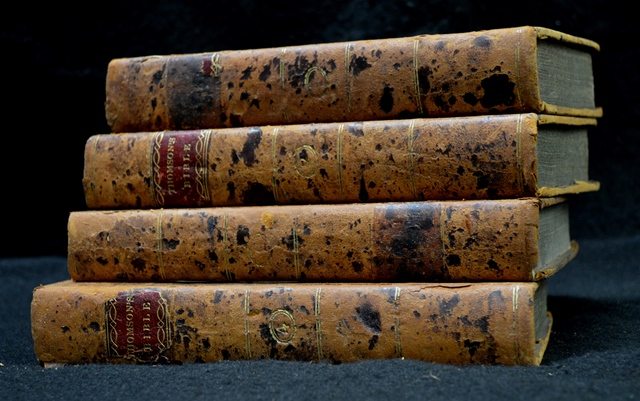 In 1815, Thomson published his famous Synopsis of the Four Evangelists, in which he took all the passages from the four Gospels and arranged them chronologically, producing something like one super long Gospel, with all Jesus’ words and acts arranged sequentially. Today, we call such a work a synoptic Gospel.
In 1815, Thomson published his famous Synopsis of the Four Evangelists, in which he took all the passages from the four Gospels and arranged them chronologically, producing something like one super long Gospel, with all Jesus’ words and acts arranged sequentially. Today, we call such a work a synoptic Gospel.
George Washington praised Thomson’s dedication, “Your Services have been important, as your patriotism was distinguished” He added his belief that “Posterity will find your Name so honorably connected…”7 Sadly, today, Charles Thomson has become a forgotten Founding Father, but his influence, both politically and spiritually, permanently shaped the course of America and blessed American life.
February 14, 2024 This post has been updated to correct information regarding Thomson’s American translation of the Bible.
Endnotes
1 John Adams, diary entry from August 30, 1774, Adams Family Papers, Massachusetts Historical Society, accessed November 1, 2023.
2 John Hancock was the second and the other delegates signed weeks later. Journals of the Continental Congress 1774-1779, edited from the original records in the Library of Congress by Worthington Chauncey Ford, Chief, Division of Manuscripts, Washington DC: Government Printing Office, 1905, The Avalon Project, Yale Law School, accessed November 1, 2023.
3 “Original Design of the Great Seal of the United States (1782),” Milestone Documents, National Archives, updated October 23, 2023.
4 Lewis R. Harley, Charles Thomson: Patriot and Scholar (Norristown, PA: Historical Society of Montgomery County, 1897), 28-29.
5 The Holy Bible as Printed by Robert Aitken and Approved & Recommended by the Congress of the United States of America in 1782, reprinted (New York: Arno Press, 1968), Introduction.
6 Harley, Charles Thomson: Patriot and Scholar (1897), 33-34.
7 George Washington to Charles Thomson, July 24, 1789, Founders Online, National Archives, accessed November 1, 2023.
Still looking for answers? Visit our FAQ page
More Resources
Know the Truth and Protect Your Freedoms.
Still looking for answers? Visit our FAQ page
Stay Informed with the Latest Resources
Enter your email address to receive our regular newsletter, with important information and updates right in your inbox!




